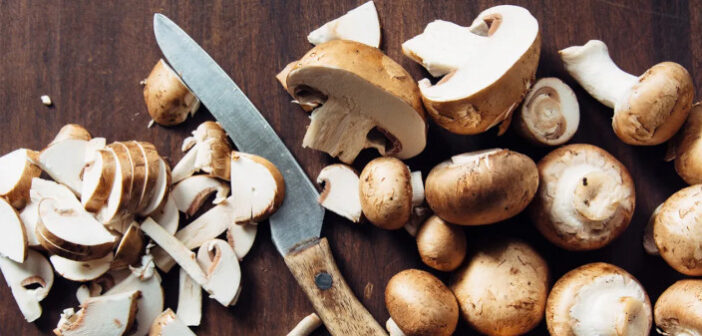It turns out that when you spend time in the sun, you’re not just acquiring a tan; you’re also supplying your body with a healthy amount of Vitamin D! This vitamin known as the “Sunshine Vitamin,” which is important for bone health, also has a few other tricks up its sleeve that are sure to make your day. Vitamin D is like a beam of wellness sunshine since it does everything from improve your mood to fortify your immune system.
Let’s start by talking about that mood improvement. Serotonin, also known as the “feel-good” hormone, is produced in part thanks to vitamin D. Catching those sunrays may therefore be a good strategy to combat the blues. Not to add, this multipurpose vitamin is crucial for boosting your immune system. By encouraging the creation of antimicrobial peptides, your body’s natural defence against dangerous bacteria and viruses, it helps your body ward off bothersome invaders.
D2 or D3?
Which form of Vitamin D is healthier for your body? Vitamin D3 from lamb’s wool or Vitamin D2 from organic mushrooms?
Despite the benefits of nutrients in their whole food form being supported by research and common sense, there is still uncertainty on this subject due to the abundance of studies, internet blogs, and supplements that do not identify the source of their D.
Vitamin D3: Sunshine or Sheep?
Natural dietary sources of vitamin D are scarce. Fortunately, sunlight exposure causes our bodies to “make” Vitamin D as Vitamin D3 (cholecalciferal).
However, as estimates of Vitamin D insufficiency in the population range from 50 to as high as 75 percent, a growth in sedentary lifestyle, usage of sunscreen, and fear of skin cancer may have led to a lack of sun exposure.
Several malignancies, heart disease, diabetes, and other conditions have been related in studies to low vitamin D levels. Therefore, it is not surprising that supplementation is considered a solution.
Many people might be surprised to learn that sheep are the source of the majority of the vitamin D3. Or, to be more precise, it is made synthetically from lanolin, an oil found in lamb’s wool.
Does vitamin D2 offer the same advantages as vitamin D3?
This widely-held belief may be traced to a 2003 study published in the Journal of Clinical Endocrinology & Metabolism, which found that “Vitamin D2 potency is less than one third that of Vitamin D3.” Several websites claim that D3 can be more effectively absorbed by the body than D2.
The Recommended Daily Allowance (RDA) for healthy adults is 400 iu, so a study examining the delivery of a single mega-dose of 50,000 iu of vitamin D has limited practical relevance, even though it may be helpful to medical experts.
Additionally, the research itself proved that D2 and D3 had comparable serum concentrations at day 3 and were equally efficiently absorbed in the bloodstream. The only difference was that the single mega-dose of D3 remained in the blood for up to 30 days and at higher levels.
Any doubts about vitamin D2’s “staying power” are soon put to rest once it is understood that daily vitamin D2 supplementation is not only feasible but also advised (thus, recommended daily allowance)
Numerous more double-blind placebo-controlled trials, including work from the Boston University School of Medicine, have confirmed the closeness of the levels of Vitamin D2 and D3 in the serum.
Vitamin D2: Is there a new source?
In previous inquiries comparing Vitamin D2 to D3, neither the D3 source (sunlight or sheep) nor the D2 source were considered.
Up until recently, yeast was the main source of D2 (ergocalciferol). Today, organic mushrooms are used to create a whole food version of vitamin D2.
Supergreens + D offers 2000 iu of Vitamin D2 derived from organic mushrooms in three simple-to-swallow capsules. The ONLY organic, whole-food, non-yeast Vitamin D supplement is available in Supergreens + D.
Mushroom has much to offer
Mushrooms offer much more than just vitamin D! There is a wealth of information about mushrooms’ therapeutic benefits for:
- Antioxidant capacity
- Immune support (beta-glucans)
- Support of healthy cholesterol levels
- Anti-inflammatory properties
- Anti-tumor capacity
Is there anything special about lamb’s wool? Maybe if you take into account its ability to produce sweaters.
What is included in Supergreens “D”?
The mushrooms inSupergreens + Dare farmed organically in the United States and processed carefully to preserve all of the mushroom’s nutritional benefits, including:
- Ergosterol
- L-Ergothioneine
- Beta-glucans
- Chitin-glucan
- Glucosamine, Chitin, Chitosan
- Vitamins (B1, B2, B3, B5, B6, B7, B9, B12, C, D2)
- Minerals (Ca, Cu, Fe, I, K, Mg, Mn, Mo, Na, Se, Zn)
- Flavanoids, Ligans, Phenolic Acids
- Conjugated Linoleic Acid (CLA)
Organic mushrooms offer much MORE than simply vitamin D, making them a much better option than sheep’s wool for your daily vitamin D needs. These nutrients range from immune-supportive beta glucans to energising B vitamins.




